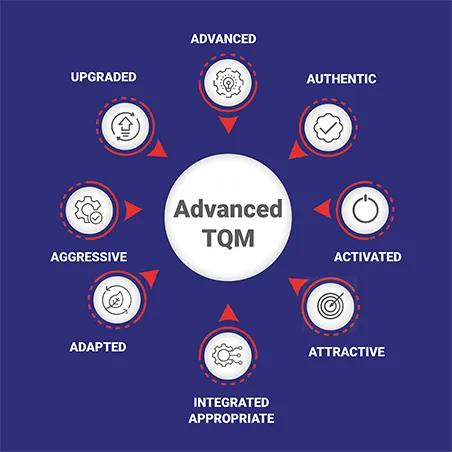
Introduction
A Quality Management System (QMS) is a collection of business processes focused on achieving your quality policy and quality objectives. It is expressed as the organizational structure, policies, procedures, processes and resources needed to implement quality management.
Quality Management System has tended to converge with sustainability and transparency initiatives, as both investor and customer satisfaction and perceived quality is increasingly tied to these factors. Of all Quality Management System regimes, the ISO 9000 family of standards is probably the most widely implemented worldwide - the ISO 19011 audit regime applies to both, and deals with quality and sustainability and their integration.
Elements of a Quality Management System
- Quality Policy
- Quality Objectives
- Quality Manual
- Organizational structure and Responsibilities
- Data Management
- Processes - including purchasing
- Resources - including natural resources and human capital
- Product Quality leading to Customer satisfaction
- Continuous Improvement including Corrective and preventive action
- Maintenance
- Sustainability - including efficient resource use and responsible environmental operations
- Engineering Change Control
- Transparency and independence audit
Quality Management Systems Approach
- Determining the needs and expectations of the customer and other interested parties;
- Establishing the quality policy and quality objectives of the organization ;
- Determining the processes and responsibilities necessary to attain the quality objectives;
- Determining and providing resources necessary to attain the quality objectives;
- Establishing methods to measure the effectiveness and efficiency of each process;
- Applying these measures to determine the effectiveness and efficiency of each process;
- Determining means of preventing nonconformities and eliminating their causes;
- Establishing and applying a process for continual improvement of the quality management system.
Benefits of Quality Management System Implementation
- Market differentiation and competitive advantage;
- Meeting basic tender requirements to be certified to an ISO9001 standard;
- Proven that your claim to quality commitment and operational quality are firmly based upon independent assessment and certification by Quality Management System;
- Reduction of liability exposure;
- Safety system compatibility;
- Continuous improvement and cost efficiency;
- Improved organizational morale.
Apart from general / universal Quality Management System, there are few Sector Specific Quality Management System which incorporates the requirements of ISO 9000 as well as the Sector Specific Requirements. Examples include ISO / IATF 16949 for Automotive Sector, TL-9000 for telecommunication etc.

